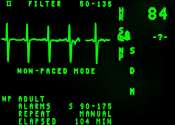It's not just what you eat, but when you eat it
Fat cells store excess energy and signal these levels to the brain. In a new study this week in Nature Medicine, Georgios Paschos PhD, a research associate in the lab of Garret FitzGerald, MD, FRS director of the Institute ...
Nov 11, 2012
2
0









